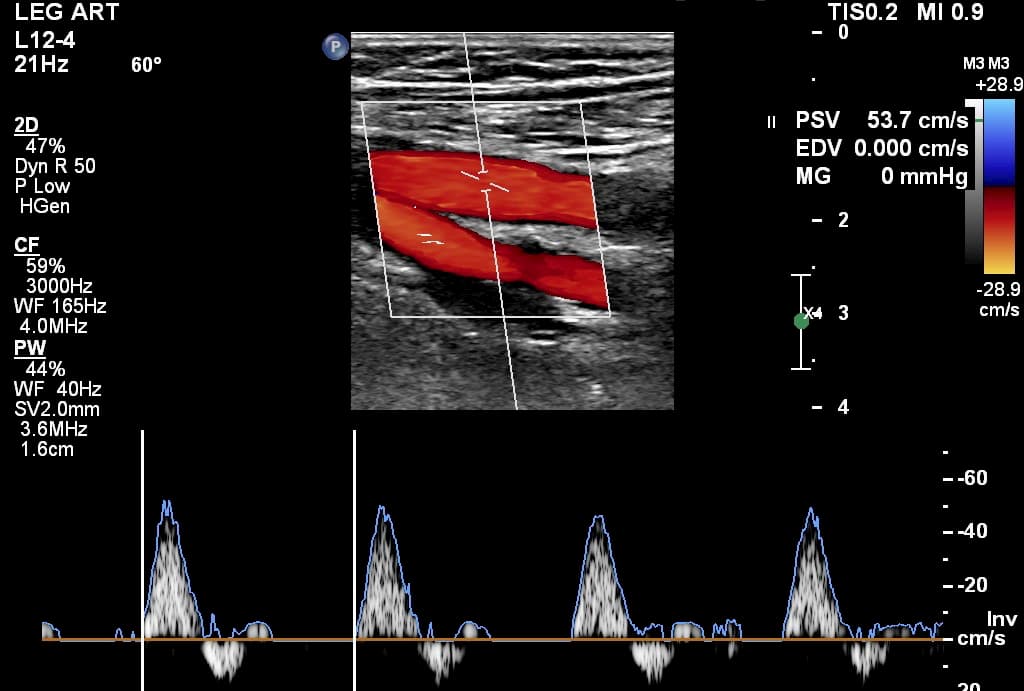ARTERIAL DIAGNOSTICS

The diagnosis of arterial disease is a process of identifying accurately the cause and site of blockages in the diseased arteries. At the Harley Street Heart and Vascular Centre, we use a variety of simple and advanced testing techniques, some unique to our vascular diagnostic laboratory, to help make the most accurate assessment and diagnosis for each patient. These include
- screening tests like ABI (ankle brachial index) and TBI (toe brachial index) to detect disease early
- advanced arterial hemodynamic (blood flow) tests like segmental pressure measurement and exercise ABI and TBI, provocation tests for Raynaud’s disease and Thoracic outlet syndrome
- diagnostic ultrasound Duplex scans of arm and leg arteries as well as of the aorta for blockages and aneurysms
- Renovascular duplex ultrasound scans for patients with hypertension where a treatable cause like a blockage of the arteries to the kidney may be the cause
Arterial diagnostic tests are carried out by our trained vascular technologists and our vascular specialists at our vascular diagnostic laboratory at Gleneagles hospital.
This is complemented by our cardiac function testing laboratory and specialized heart function tests that are supervised by our expert cardiology physicians who manage the risk of heart disease and stroke associated with these conditions.

